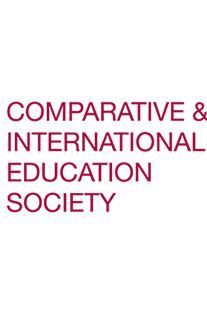In mid-March, I attended the annual meeting of the Comparative & International Education Society (CIES), a scholarly association which focuses on promoting cross-cultural understanding, societal development and scholarship through the study of international educational ideas and practices. The theme of the CIES’s 2013 conference in New Orleans centered on educational quality, and how definitions of quality and its measurement are contested and shaped through global forces. At OCCRL, I am part of two teams who are evaluating national consortia funded as part of the Trade Adjustment Assistance Community College Career Training (TAACCCT) Grant Evaluations first-round grant program (H2P, NISGTC), in which multiple measures of program progress are utilized to assess the outcomes of access and completion strategies across two consortia of community colleges. As an academic working on issues of access and quality in education, this conference was an opportunity to meet and network with fellow researchers and scholars interested in promoting quality while reducing educational inequities.
Although our project is quite domestic in nature, several presentations I attended reminded me that when examining and comparing educational trends in other parts of the world, one is often apt to find many more similarities than differences across systems. For example, during a panel titled “Defining Educational Quality in Community Colleges, Colleges of Further Education and For-Profit Universities”, which explored developments in Mexico, the U.K. and the U.S., it was fascinating to discover that in Mexico, there is a shifting focus to short-term intensive classes and credentialing – which are also components of some the programs of study in the TAACCCT grant. However, none of the programs OCCRL researchers are evaluating offer the promise of “becoming a lawyer in a few weekends”.
In another session, titled “The Role of University Career Centers in Improving Youth Employment Opportunities in North Africa”, panelists discussed employer outreach opportunities being developed by universities in Algeria & Egypt. In these northern African countries, career development centers are not only providing career counseling but also internships to students, through expanding partnerships with local employers. Such employer partnerships are also an important element of the TAACCCT grant. Each of the two consortia being evaluated by the OCCRL have reported the value of employer partnerships in creating not only internships and externships, but also helping to construct and validate curricula and capstone courses designed to provide skills necessary for industry employment. With employer partners in North Africa also starting to inform curriculum in their local institutions of higher education, there appear to be strong similarities in the U.S. and North Africa regarding how employers and educators collaborate to train and prepare the local workforce.
Following these presentations, a fellow colleague from Tanzania commented on the state of their country’s vocational training centers, which like community colleges in the U.S., serve as a route through which to extend education and training opportunities to those not in university. Worried about Tanzania’s ability to provide the resources to maintain and sustain those institutions, my colleague looked to community college models in the U.S. for best practices and guidance on promoting sustainability. What my colleague did not realize was that many community colleges in the U.S. also navigate uncertain futures as they struggle with issues of continued funding in an era of budget cutbacks and sequestration. Once again I was made aware of the many challenges educators share worldwide, and reminded of the value of expanding my understanding of international educational issues and trends to broaden my perspectives on community college education here in the U.S.
What type of national or international comparative experiences have you had which have helped to inform your work or broaden your perspective? How can we as educators, practitioners and policymakers use comparative experiences to make our work more accessible and valuable to wider audiences?




